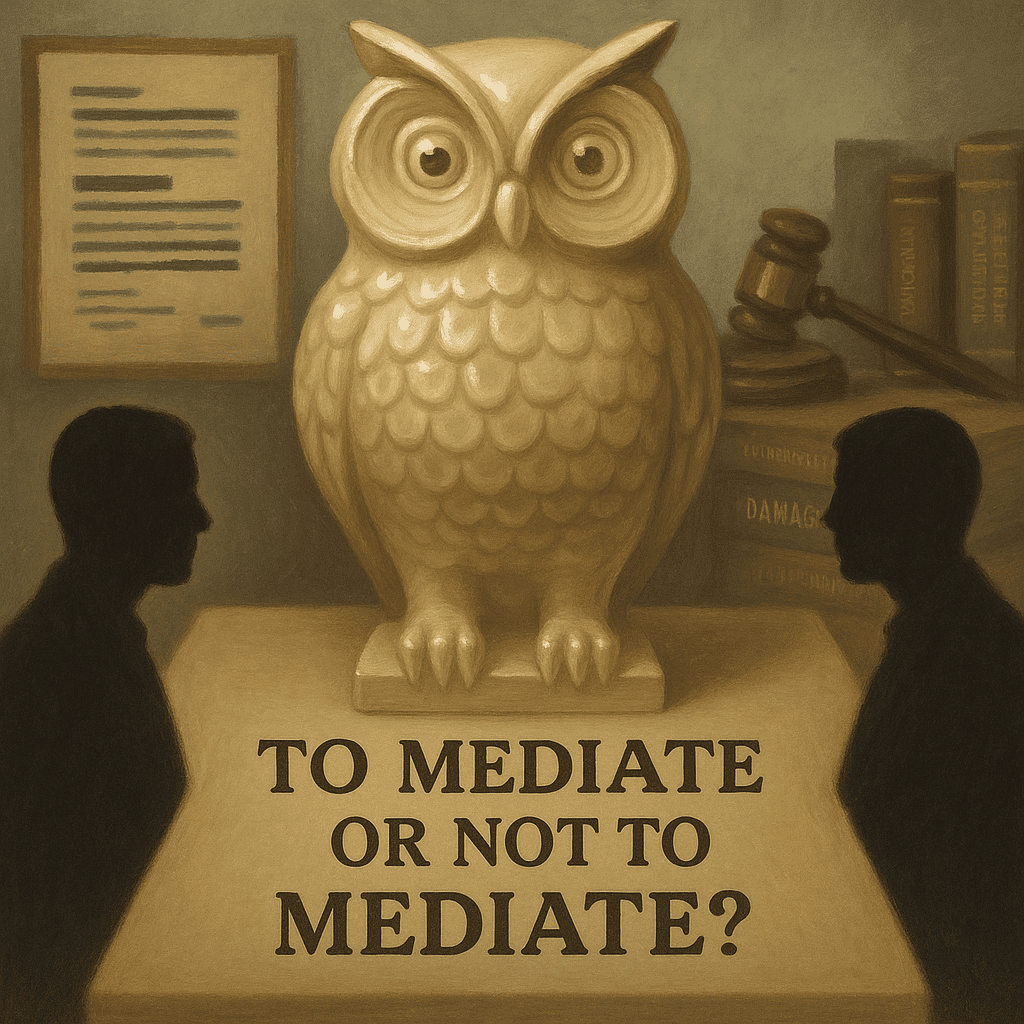Why Suggesting Mediation Is a Strength, Not a Sign of Weakness
By Peter Causton

In the world of conflict—whether in business, family, or legal disputes—there’s a persistent and misguided belief that proposing mediation is a sign of weakness. To some, it signals retreat, an admission of fault, or a lack of confidence in one’s case. But this couldn’t be further from the truth.
Suggesting mediation is not a concession—it’s a calculated, courageous, and often strategic decision. It requires clarity of thought, emotional intelligence, and above all, leadership. Here’s why.
1.
It Takes Strength to Choose Dialogue Over Combat
Anyone can dig in, escalate, or threaten. That’s easy. What’s hard is being the first to extend a hand—to say: let’s talk. Mediation is not about surrender; it’s about finding a smarter route to resolution. It takes guts to face your opponent across a table, to listen as well as speak, and to accept that resolution may involve compromise. That’s not weakness. That’s maturity and control.
2.
Mediation Is About Control and Empowerment
Litigation puts your fate in the hands of a third party: a judge or jury who doesn’t know your business, your family, or your priorities. Mediation puts the control back in your hands. You shape the outcome, not the court. You decide what’s acceptable. That’s power—not passivity.
3.
Strong Negotiators Mediate to Win Wisely
The best negotiators know that winning isn’t about humiliating your opponent or dragging things out until one party collapses. It’s about achieving your goals with maximum efficiency and minimum collateral damage. Mediation allows for solutions that a court simply can’t offer: creative agreements, preserved relationships, confidentiality, speed. It’s not about giving in—it’s about getting out with dignity and results.
4.
Refusing to Mediate Can Backfire
Increasingly, courts and tribunals expect parties to attempt settlement before trial. Refusing to mediate can result in serious cost penalties, even if you go on to win your case. Judges are alert to parties who treat litigation as a battlefield and dismiss out-of-court options out of pride or spite. True strength is shown by those who make every effort to resolve things constructively before resorting to public confrontation.
5.
Mediation Respects Time, Resources, and Wellbeing
Litigation is costly—not just financially, but emotionally. It drains time, relationships, and morale. Mediation is often faster, cheaper, and less adversarial. Choosing it shows respect for your own resources and those of the other party. It shows you are solution-focused, not conflict-driven.
Conclusion: Let’s Redefine Strength
Suggesting mediation isn’t weak. It’s bold. It’s smart. It shows you’re thinking beyond your ego and toward a solution. In a world of growing complexity and interdependence, the ability to resolve disputes through dialogue is one of the greatest strengths a person or organisation can possess.
So next time someone suggests mediation, don’t see it as an admission of defeat. See it as an opportunity. Because in truth, it’s not the weak who mediate—it’s the wise!

